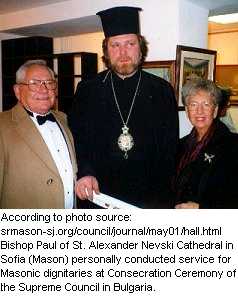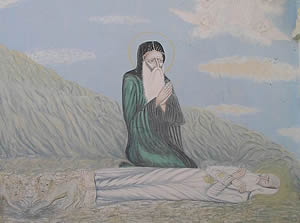Hmmm. I still hold to Fr. Seraphim Rose’s argument, that evolution is rejected in principle, since death is a result of the human fall, and there was no death prior to that.
One can get into scriptural arguments, like the animals eating ‘every green herb’ rather than each other, but I think this is to descend to the ground of one’s opponents unnecessarily. The burden is on the one who would claim to simultaneously hold Orthodox doctrine and evolutionary theory.
I’ve read the arguments against that by orthodox claiming that, well, the garden wasn’t the whole earth, and so on. I think those are straw man arguments.
I could see an argument for Eden existing outside of normal time, so that the curse fell upon the garden and the rest of the world simultaneously but at different times, yielding an old earth subject to death and a young mankind entering the world at a particular time-point and subject to the same death. Leaving the garden would then constitute being subjected to a world embued with normal time and mortality at once. And I could see that, as well, fitting with scriptural assertions that death was created to ensure that man could not live forever in either his illicit knowledge or his sins. Still, in this scenario, death would begin with man’s fall. The origin and problem of death is an inviolable tenet of our Faith.
 It occasionally bears repeating, that Orthodox are forbidden to be freemasons. Period. No, ifs, ands, buts. Not if we understand it in a certain way. Not if it is this or isn’t that. It’s verboten. Among the
It occasionally bears repeating, that Orthodox are forbidden to be freemasons. Period. No, ifs, ands, buts. Not if we understand it in a certain way. Not if it is this or isn’t that. It’s verboten. Among the  This is, in fact, the theme of every zombie-genre film from 28-Days to I am Legend: a race of people who are sick and who turn on any one who is not sick.
This is, in fact, the theme of every zombie-genre film from 28-Days to I am Legend: a race of people who are sick and who turn on any one who is not sick.